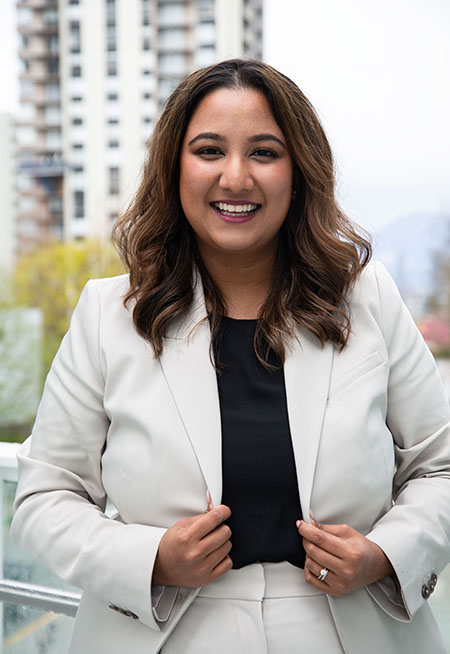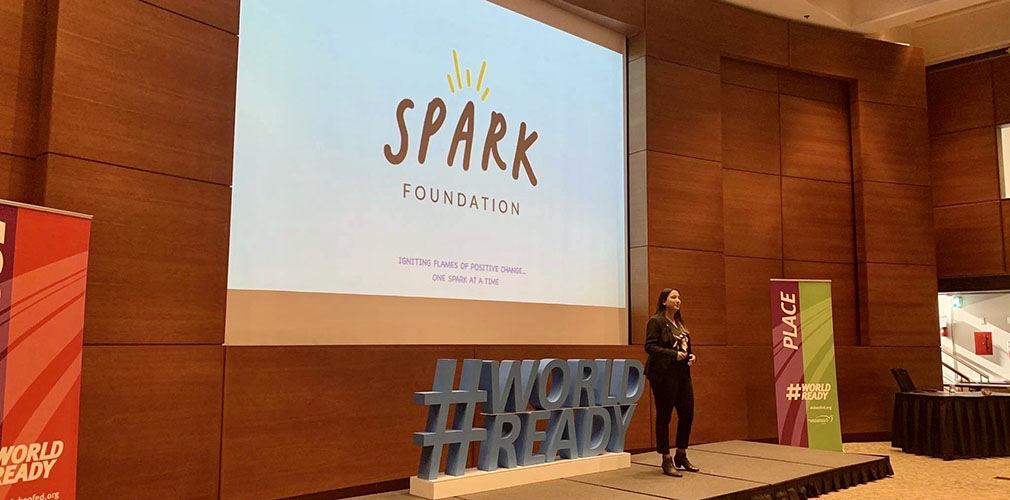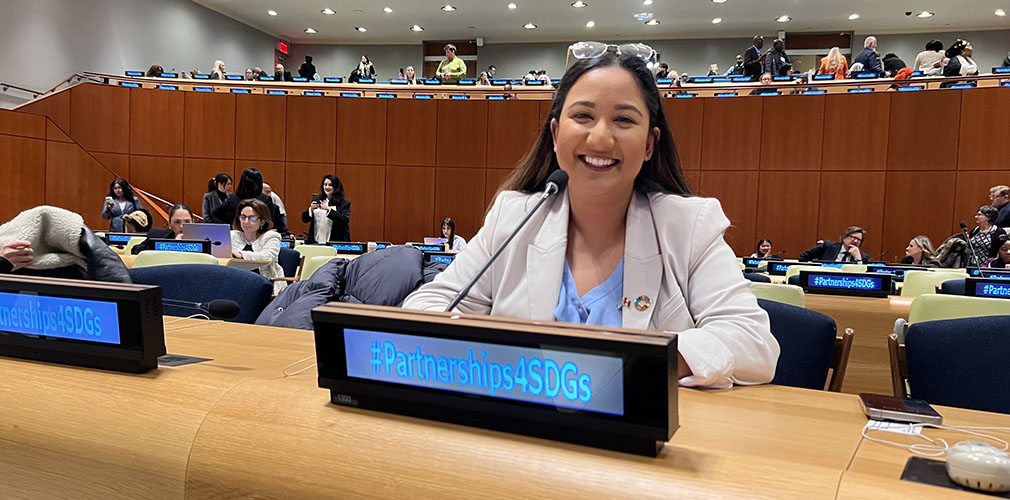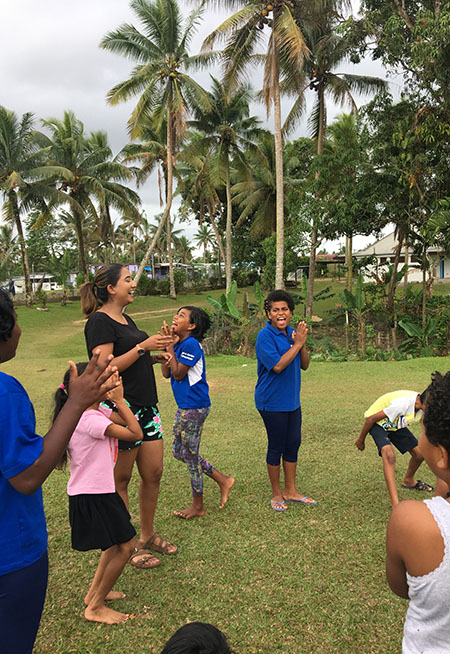

Faculty at Alexander College do more than teach. They are also researchers, activists, creators, authors, and more.
Rochelle Prasad is not only an International Studies instructor at Alexander College, she is also an advocate for quality education and founder of SPARK Foundation. SPARK Foundation is a non-profit organization dedicated to providing valuable skills to youth and helping them access higher education.
Founded in 2014, the organization has helped more than half a million people around the world, primarily focusing on Canada, Fiji, and India.
Aside from her work with SPARK Foundation, Rochelle is also involved in the United Nations as a youth representative to Canada and Fiji.

Q. I’ve read that SPARK Foundation also helps teach soft skills to students who may not have the opportunities to learn them through formal education. In all your years of working in education, do you think school systems have improved in this aspect? If not, how could they improve?
While some school systems have started integrating soft skills into their curricula, progress is inconsistent. Many students still lack access to leadership training, communication workshops, and financial literacy—skills essential for success beyond the classroom.
Schools can improve by embedding soft skills into their courses, providing experiential learning opportunities, and forming partnerships with organizations like SPARK to bridge the gap between theory and practice.

Q. Do you think the prevalence of smartphones and online learning platforms has lowered the barrier to quality education?
Smartphones and online learning platforms have undoubtedly lowered barriers to education, making resources more widely available. However, access doesn’t always mean equity. Not all students have reliable internet, digital literacy, or the ability to navigate these platforms effectively.
The focus should now shift to ensuring that technology is used inclusively, with governments and educators working together to provide digital infrastructure and support for marginalized communities.
Q. What can educators do to make education more accessible and sustainable?
Educators can enhance accessibility by adopting flexible teaching methods, using open-access resources, and incorporating real-world applications into their lessons.
Sustainability comes from fostering lifelong learning habits, promoting critical thinking, and advocating for policies that prioritize education funding and equity.

Q. If there are students who want to get involved, what would be the best way to start?
Students that want to get involved can start by joining initiatives like SPARK Foundation, volunteering with local education-focused organizations, or even launching their own community projects!
For more information on volunteer opportunities head to SPARK Foundations Instagram page @sparkfoundation.ca

Q. Do you have any future projects or plans that you would like to share?
I’m currently working on expanding SPARK Foundation’s global reach, advocating for a Canadian Youth Observer to the UN, and exploring diplomatic opportunities focused on youth engagement in Fiji and Canada. My goal is to continue creating platforms where youth can lead and shape the future.
Q. Is there anything else you would like to share with the readers?
Education is more than just acquiring knowledge—it’s about empowerment, access, and action. Whether you’re a student, educator, or policymaker, there’s always a role to play in making learning more equitable and impactful. The key is to take that first step toward change.
Alexander College acknowledges that the land on which we usually gather is the traditional, ancestral and unceded territory of the Coast Salish peoples, including the territories of the xʷməθkwəy̓əm (Musqueam), Skwxwú7mesh (Squamish), and Səl̓ílwətaʔ/Selilwitulh (Tsleil-Waututh) Nations. We are grateful to have the opportunity to work in this territory.
Alexander College acknowledges that the land on which we usually gather is the traditional, ancestral and unceded territory of the Coast Salish peoples, including the territories of the xʷməθkwəy̓əm (Musqueam), Skwxwú7mesh (Squamish), and Səl̓ílwətaʔ/Selilwitulh (Tsleil-Waututh) Nations. We are grateful to have the opportunity to work in this territory.